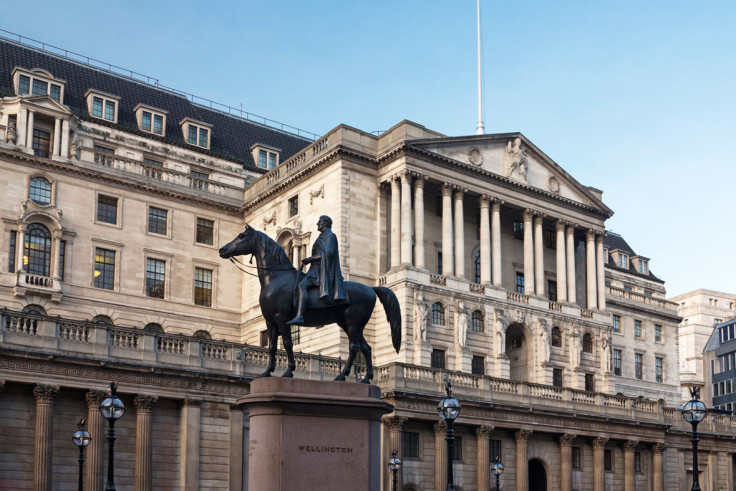Bank of England warns of Brexit uncertainty and keeps interest rates unchanged at 0.5%

The Bank of England (BoE) said on Thursday (12 May) that it has voted unanimously to keep interest rates unchanged, as widely expected by economists.
At the bank's meeting on 11 May, Threadneedle Street officials voted 9-0 in favour of keeping interest rates at a near-historic low of 0.5% and also voted unanimously to maintain the stock of purchased assets financed by the issuance of central bank reserves at £375bn (€470bn, $530.6bn).
The BoE's Monetary Policy Committee (MPC) cited persistent low inflation as one of the reasons to hold off on a rate hike. The consumer price index (CPI), one of the bank's preferred measures of inflation, increased to 0.5% in March but remained comfortably below the 2% targeted by the BoE.
The UK economy slowed down in the first quarter of 2016 and the BoE warned a further deceleration was expected in the upcoming three months, cutting its growth forecast from 0.5% to 0.3%.
The BoE also reduced forecast for economic growth for each of the next three years, with growth expected to be 2.3% in 2017 and 2018, compared with the 2.4 to 2.5% forecast in February, while growth for the current year has been cut from 2.2% to 2%.
"Recent economic data releases have certainly painted a worsening picture," said Ben Brettell, senior economist at Hargreaves Lansdown.
"As such it wasn't a surprise that the Bank cut its growth forecast for 2016."
Policymakers indicated there were increasing signs that uncertainty associated with the European Union referendum has begun to weigh on activity and could lead to a sharp fall in the value of the pound and to higher unemployment.
"Households could defer consumption and firms delay investment, lowering labour demand and causing unemployment to rise," the MPC said in the minutes to its May meeting.
"Sterling is also likely to depreciate further [in a Brexit scenario], perhaps sharply."
The MPC went to add that uncertainty surrounding a potential Brexit was making the relationship between macroeconomic and financial indicators and underlying economic momentum harder to interpret.
"Growth over the forecast horizon is expected to be slightly weaker than in the February projection," it said in a statement.
"The May projection is conditioned on a path for Bank Rate implied by market rates and on continued UK membership of the European Union, including an assumption for the exchange rate consistent with that."
Maike Currie, investment director for personal investing at Fidelity International, added that ongoing subdued growth could lead to a further rate cut.
"The idea behind negative rates is that it encourages banks to lend money more cheaply," she said.
"This encourages savers to go out and spend, boosting economic growth and raising inflation. But the opposite seems to be playing out: savers, unable to get the returns they need to prepare for retirement, are increasingly diverting money from spending into saving."
However, Britain's central bank noted the macroeconomic environment worldwide has improved, along with sentiment in financial markets.
"There has been a broad-based recovery in risky asset prices, a resumption of capital flows to emerging market economies, and a sharp rise in the price of oil," it said in a statement.
"Near-term prospects for China and other emerging market economies have improved a little, although medium-term downside risks remain."
© Copyright IBTimes 2025. All rights reserved.






















